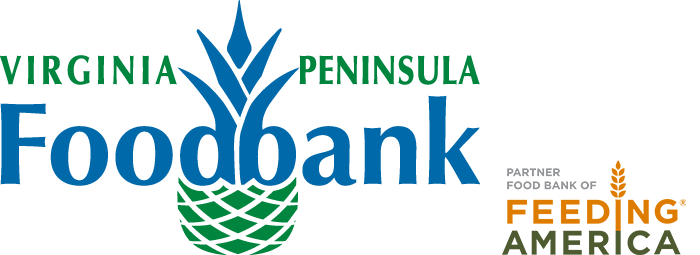Advocacy
CURRENT 2023 Farm Bill priorities are up for consideration: As Congress discusses funding for federal nutrition and agriculture programs in the 2023 Farm Bill, lawmakers must work together on a strong bipartisan bill that will increase investments in the Emergency Food Assistance Program (TEFAP) and the Supplemental Nutrition Assistance Program (SNAP). These programs are hunger lifelines for our communities and food banks, including Virginia Peninsula Foodbank.
TEFAP provides our nation's emergency feeding organizations with U.S. - grown food to help community members put food on the table. Increasing funding for TEFAP can help ensure food banks have a reliable food source and strengthen our agricultural economy.
Food banks are facing sustained heightened demand, continued supply chain disruptions, increased food purchase and transportation costs, and a decrease in the amount of food received from donations and the federal government. To close the gaps, food banks are buying more food and paying more for those purchases. This is not a sustainable solution for food banks and the people we serve.
SNAP is the nation's largest hunger-relief program. In 2022, SNAP helped around 40m people put food on the table during tough times.
At the Foodbank, we value having strong relationships with our local, state, and federal government representatives. We receive food commodities from the U.S. Department of Agriculture and funding reimbursements for many of our child nutrition programs. We also receive grant funding from local municipalities to support our mission and work. Maintaining communication with elected and appointed officials, regardless of party affiliation, helps us emphasize the importance of developing solutions to the issue of community food insecurity. Our team also routinely provides data and stories to legislators about local hunger issues to help inform their decisions to bring about positive change. Finally, we bring in government officials for tours and host an annual Elected Officials Day that enables them to receive a grassroots perspective of our programs and operations.
Examples of government policies that support our feeding programs include the USDA TEFAP (The Emergency Food Assistance Program) and CSFP (Commodity Supplemental Food Program) initiatives, as well as the Child Nutrition Reauthorization Act (school, evening, and summer meals for children), and the Farm Bill. The resources provided through this legislation offer essential support to our capacity to acquire and distribute food. Strengthening and enhancing these programs, when possible, enables us to serve even more of our neighbors in need. We work every day to distribute the food we receive throughout our service area.
You can also make a difference by encouraging government officials to support policies that help feed our neighbors across the greater Peninsula. We will keep you informed of legislation and initiatives that relate to food assistance and hunger relief, and we also invite you to share your personal story with us to put a face to the solvable challenge of food insecurity. You can help us communicate the true impact of hunger by providing insight as to how it has affected your life or the lives of people you know. Together, we can take specific steps to help end hunger.
Take Action Against Hunger: Sign Up for Advocacy Alerts
Join the Federation of Virginia Food Banks in working toward a hunger-free Virginia! Sign up today for their statewide advocacy alerts and you’ll receive timely updates on important food access policies and opportunities to take action. Whether it’s contacting legislators, supporting key initiatives, or spreading awareness, you’ll be equipped to make a real difference for neighbors facing food insecurity.
Sign up today and help us achieve a hunger-free Virginia!
